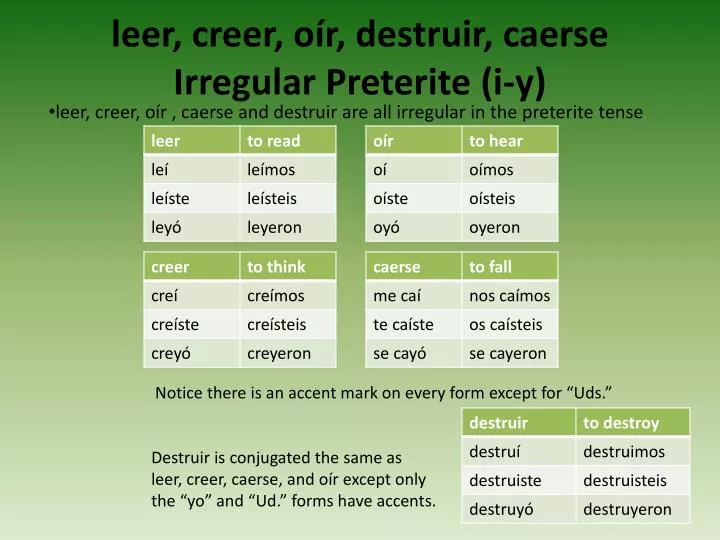Leer In Imperfect. You were living, you used to live. Last but not least, use the imperfect when telling the time or talking about time in the past:

He/she/it was living, he/she/it used to live. It is completely regular in the imperfect tense. It differs in a few ways from the pretérito perfecto _ and _pretérito indefinido in that it is mostly used as a descriptive tense or.
Receta De Ada Parellada, Chef Del Restaurante Semproniana.
The verb leer is regular in the imperfect tense. The imperfect tense in spanish is a verb form used to express happenings and actions in the past that are viewed as incomplete, continuous, repeated, or habitual. ¿de niño, qué tipo de libros leías?
The Spanish Word Leer Means ‘To Read’.
The imperfect tense is rarely irregular and can be easily conjugated from this form, which is the yo , and él/ella conjugation. Aprendí a leer cuando tenía dos años. Imperfect subjunctive tense using the chart below you can learn how to conjugate the spanish verb leer in imperfect subjunctive tense.
I Read The Newspaper Every Day.
The verb “to read” is conjugated this way in imparfait tense: You were living, you used to live. (marla and juan used to read the newspaper every sunday.) antes yo leía muchos libros, pero ahora no.
It Is Completely Regular In The Imperfect Tense.
The verbs ir (to go), ver (to see), and ser (to be) are completely irregular in the imperfect tense. Add the new ending ( ía, ías, ia, íamos, íais, ían) This tense is most often found in written language.
You Were Not Being, You Never Used To Be.
Leían color key search terms for this conjugation imperfect form of leer imperfect leer imperfect tense of leer imperfecto de leer imperfecto leer (it was 7:00 when i woke up.) era muy tarde cuando volví. A certified b corporation tm (b corp tm ), imperfect foods works directly with farmers and producers to rescue, redistribute, and develop goods across multiple grocery categories, including its own.
Related Posts
- Jugar In Imperfect TenseJugar In Imperfect Tense. You were not living, you never used to live. Romper is regular in the imperfect tense see the tables below for the full con ...
- Congugate LeerCongugate Leer. Interested in learning how to conjugate leer? A quick lesson demonstrating how to conjugate (form) verbs like leer, creer, and oír in ...
- Querer Imperfect SubjunctiveQuerer Imperfect Subjunctive. No website has more resources to get you speaking spanish quickly. These verb charts are only a tool to use while one i ...